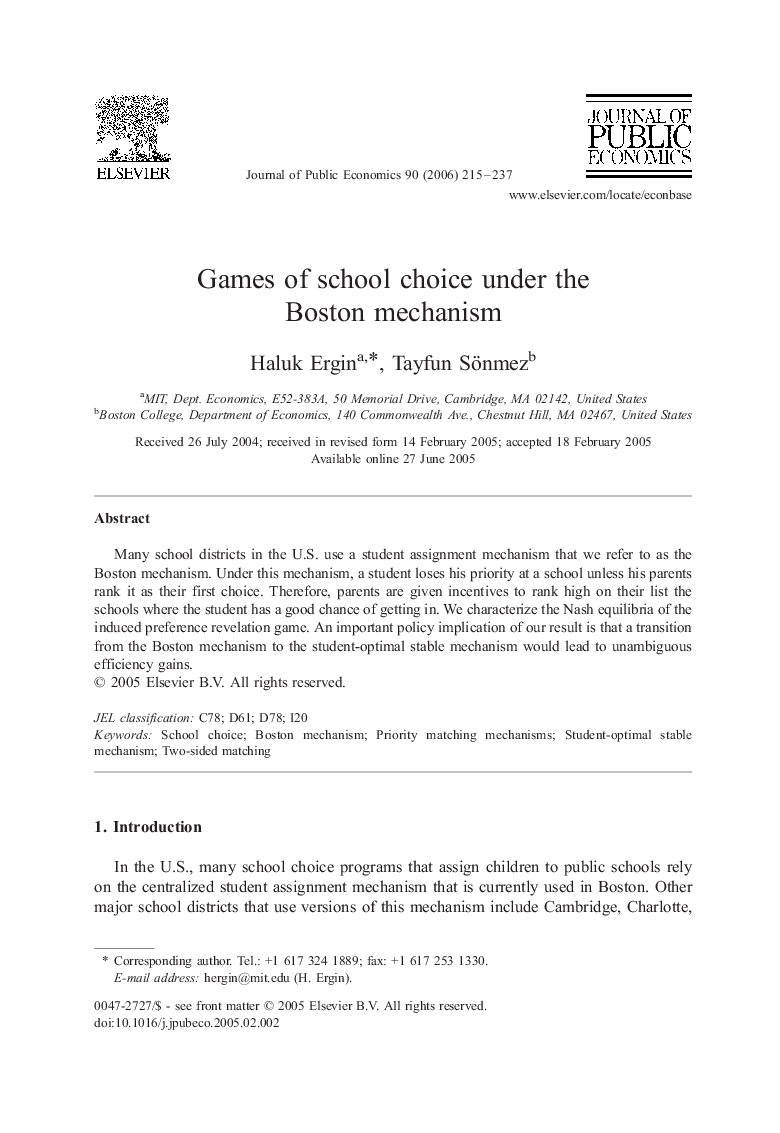| Article ID | Journal | Published Year | Pages | File Type |
|---|---|---|---|---|
| 969607 | Journal of Public Economics | 2006 | 23 Pages |
Abstract
Many school districts in the U.S. use a student assignment mechanism that we refer to as the Boston mechanism. Under this mechanism, a student loses his priority at a school unless his parents rank it as their first choice. Therefore, parents are given incentives to rank high on their list the schools where the student has a good chance of getting in. We characterize the Nash equilibria of the induced preference revelation game. An important policy implication of our result is that a transition from the Boston mechanism to the student-optimal stable mechanism would lead to unambiguous efficiency gains.
Related Topics
Social Sciences and Humanities
Economics, Econometrics and Finance
Economics and Econometrics
Authors
Haluk Ergin, Tayfun Sönmez,
